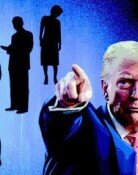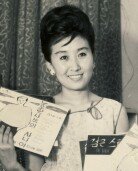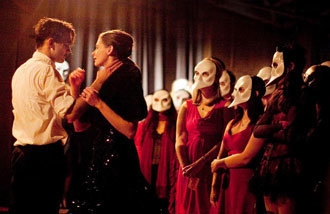The Red Guard

The Red Guard Revolution (Cultural Revolution) is a horror movie that has been endlessly reproduced in the minds of the Chinese people, just like Nightmare, or Friday the 13th. The Red Guard Unit is the serial killer Freddy or Jason in the horror flick. Actually, to be more precise, hes Chucky, the doll possessed by the devil.
To explain another countrys modern history to those who do not even know Koreas modern history properly, there is probably no other metaphor that is as convenient as this. It is too piecemeal, you say? Cultural Revolution and Red Guard have already become literary adjectives defining mass hysteria and elite guard beyond their own historical identity, dont you think?
The Gang of One: Memoirs of a Red Guard that has been published in the United States as a nonfiction book, however, proves with vividness that the Cultural Revolution was not only about fictitious screams or of being a perpetrator, but also that of being a victim who had to live in the reality of muffled screams.
The author, Shen Fan (50 years), is an English professor at a small university in a central region of the United States. If you take a look at his resume, the relationship between him and the Red Guard does not come to mind easily. On his name, however, the bright red mark of a revolution has been stamped.
My grandfather and grandmother were both Qing royalty, and they were both revolutionaries who rebelled against the foreign powers. My parents also lived lives of a communist revolutionary, fighting against Japan and the Kuomintang And they proclaimed their first-born a true revolutionary, with the name Fan. The name meant a commoner amongst millions of other laborers.
True to his family line of revolutionary blood, he was the 12-year-old Hong So Qi (a young Red Guard) who, in May 17, 1966, took to heart the orders of Mao Zedong, I order the Red Guard to punish hiding enemies! printed in the Chartist newspaper like a calling from God. Living with his general father and party executive mother in Beijing, he burned all kinds of books and took sensual pleasure in inflicting schoolteachers and leaders to brutal lynching. To him, the Cultural Revolution was a great game. No one, not even his parents or teachers, could interfere with this game.
In a school where teachers and classes had all vanished, he was able to form clubs like the Great Wall of China Battle Group and Revolutionaries with No Fear, and took charge of all classes. Hiding enemies were people who possessed power. That power represented knowledge and wealth, and the elite society who had influence.
Reading scenes where tens of thousands of Red Guard Units gathered in a soccer field and cheered as they victimized general officers or the mayor of Beijing by stripping them down and inflicting humiliation and violence, one can easily see how open square torture can outrun closed door torture. Scenes where, again, tens of thousands of Red Guards gather in the Tiananmen Square and showed signs of mass hysteria and fainting at the dot-like sight of Mao Zedong, as well as scenes of horrific group hypnosis, are enough to raise goosebumps.
But the revolution was just chaos for the sake of chaos, and the Red Guard was a tool for power struggles. The Red Guard who searched endlessly for hiding enemies, who tore human stomachs open and were sickeningly riveted at the sight of guts pouring out, eventually kill each other and die.
The real attraction of this book is not the first part in which the reality of Red Guards is being confessed, but the later chapters where this sort of life is being uprooted and overcome. After two years of being Hong So Qi, he travels to remote places in the footsteps of supposed great leaders and leaves his parents thousands of kilometers away to live as a poor farmer for four years, and again as a factory worker for six years, causing suicides for reasons unknown. Meanwhile, his sword of revolution is replaced with the dagger raised towards revolution.
The lesson he learned from the citizens was not revolution. It was their healthy optimism and worldly-wisdom. He used this as a weapon to get his revenge for all the years he lost due to the revolution. As he accumulated knowledge by working daily and studying nightly, he became a college student by roasting corrupted and deceitful officers alive, and by studying abroad in the United States in 1984, he finally announced his separation with them.
This book has an absorbing quality that is more intense than the will of steel that exposes the fiction of a revolution. The tragic love with the woman Li Ling that the author completely destroys as Hong So Qi but shall always keep in his heart as the savior woman, is as dramatic as the movie Doctor Zhivago. Also, the wry humor that the author employs when, after many adventures, he is comparing himself to Sonokong who rebelled against the fortune gods, is positively enlightening.
The original is called Gang of One (2004).
Chae-Hyun Kwon confetti@donga.com







